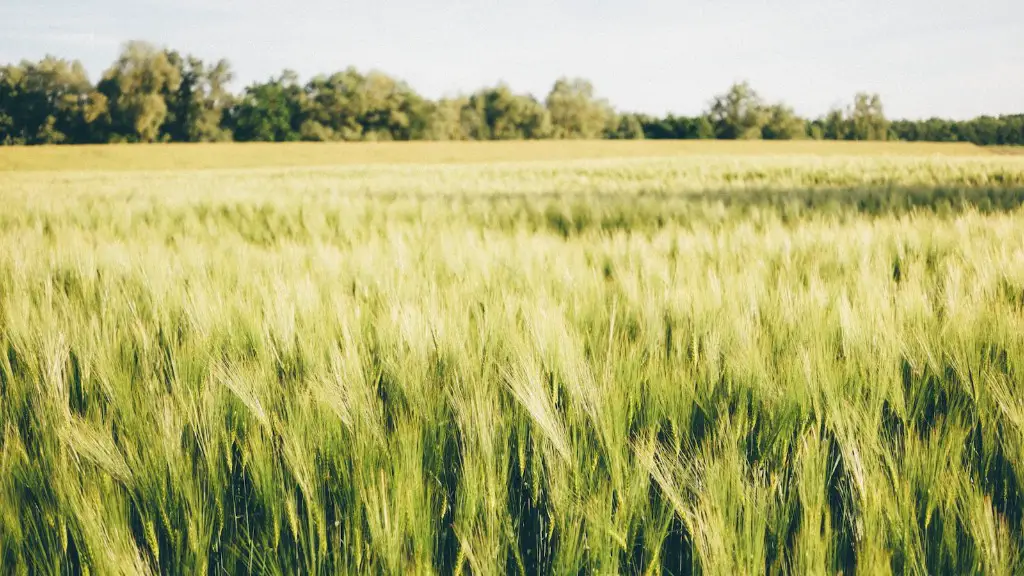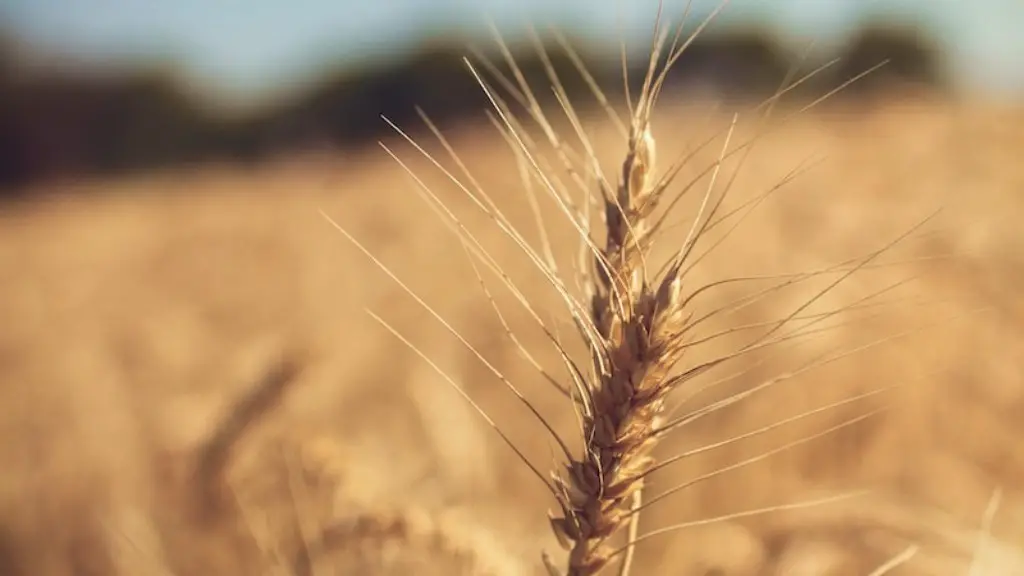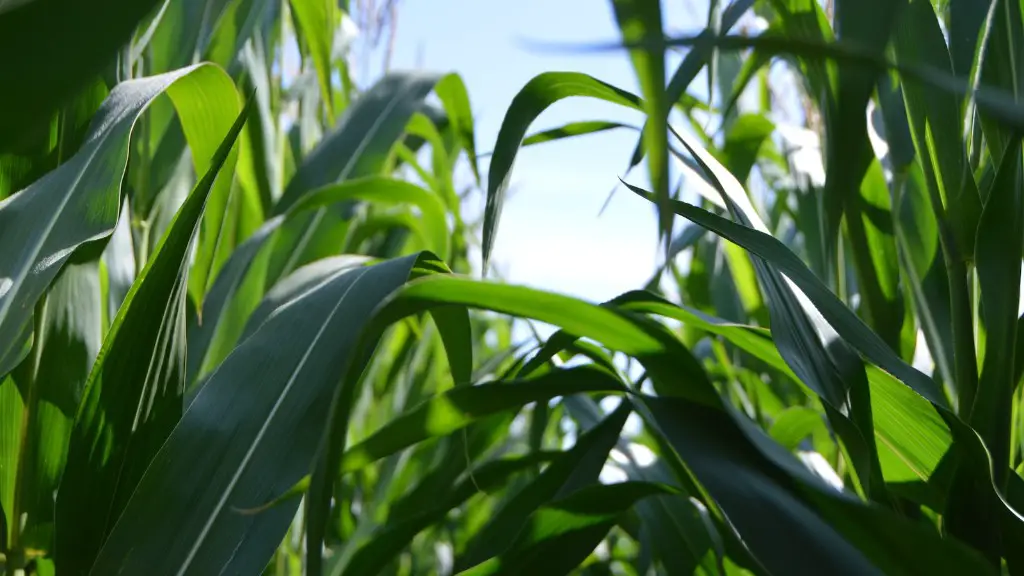Agriculture offers a vast array of lessons for those who seek to learn its myriad principles. Students of all ages and backgrounds can find something to grasp from the global practice of growing food, from the most basic methods to the most cutting-edge advancements. In this post, we’ll look at some of the most fundamental lessons that can be gleaned from agriculture and break them down into four sections: Best Agricultural Practices, Agricultural Adaptations, Agricultural Sustainability and Agricultural Education.
Best Agricultural Practices
The best agricultural practices are essential to any successful crop. Utilizing compost, crop rotation and fertilizing are all great ways to increase soil fertility and make the most out of a given space. Using organic pesticides and weed killers can help keep a healthy balance of the environment, while local farmers markets are a great way to get fresh, locally-sourced produce to the community.
Site selection plays a huge role in successful crops, as well. Knowing local climate, soil composition and topography can make all the difference between a thriving farm and one that falters. Choosing the best season to plant and harvest, as well as harvesting methods are also essential elements to consider.
Animal husbandry, too, has become an increasingly important part of modern agricultural practices. Professional breeders and small farmers alike utilize techniques such as selection, inbreeding and crossbreeding to ensure they’re getting the best breed of whatever animal they’re dealing with.
Whether it’s choosing which seed varieties to plant, or deciding how best to irrigate a field, the best agricultural practices are the cornerstone of successful crop cultivation.
Agricultural Adaptations
Agriculture has adopted a variety of technologies to help keep up with global demand. Precision agriculture, for instance, uses drones and satellite imagery to collect data to better manage fields and reduce inputs. Plant genome sequencing, too, has allowed farmers to develop new crop varieties and improve upon existing ones.
More efficient irrigation systems, such as subsurface drip, have helped farmers better manage water resources, while GPS-enabled tractors have allowed for greater accuracy during planting, harvesting and plowing. Even the automation of commodity delivery systems and the transportation of livestock have become commonplace, thanks to new technologies.
Urban agriculture, including vertical farming, aquaponics and hydroponics, has also emerged as a way to cultivate crops in often-neglected city centers. By embracing these new technologies, agricultural practices can become even more efficient and productive.
Whether it’s using modern equipment or traditional methods, knowing which agricultural techniques to utilize is essential in adapting crops to changing environmental conditions.
Agricultural Sustainability
Agricultural sustainability means understanding how to protect and utilize natural resources while providing enough food to meet human needs. Methods such as no-till farming, cover cropping and implementation of low and no-chemical insecticides help boost soil fertility and reduce erosion.
Conservation tillage, another practice, utilizes vegetation to reduce runoff and improve water infiltration, as well as providing essential nutrients and habitat for wildlife. And integrated pest management allows for better understanding of insect behavior to better identify pests and reduce the use of pesticides.
Organic farming and animal-based farming reduces pollution and has been found to actually increase the efficiency in which food is produced. All of these methods and more incorporate ways to responsibly manage and protect the environment while producing healthy and plentiful food.
By embracing sustainability, farmers can grow food while minimizing the negative impact, both on their land and the planet at large.
Agricultural Education
Agriculture is a way to expand the educational opportunities available to those who wish to learn. Agriculture can provide a comprehensive and comprehensive education in mathematics, science and engineering, as well as hands-on training in sustainable agriculture techniques.
Educational institutes such as colleges, universities and technical schools offer courses in general farming and animal husbandry, soil science and forestry, as well as organic farming, sustainable agriculture, and biochemistry and genetics.
Agricultural libraries, journals, and field trips are also a great way to gain knowledge. And if formal education isn’t an option, there are a variety of resources available online and from local organizations that provide valuable agricultural insight.
By understanding the principles of agriculture, students can develop a broader understanding of the world’s food needs, as well as learning to address global food insecurity.
Agricultural Industries
Agriculture not only provides sustenance, but it’s an industry in and of itself. There are dozens of agricultural businesses ranging from growers to processors to wholesalers and retailers, all involved in bringing food from the farms to the tables of consumers.
With the rapid population growth, the world’s demand for food is ever-changing, and the agricultural industry is always adapting. Employers are seeking those with an understanding of the industry, using cutting-edge technologies, innovative ideas and the ability to manage resources.
There are a variety of career opportunities for those with a desire to work in agriculture. From small-scale production to large corporate farms, to working in retail, marketing and more, there are a wealth of opportunities in this ever-evolving industry.
Not only can working in the agricultural industry provide financial gain, it can make a real impact in the world. From reducing hunger to helping protect the environment, agricultural professionals can make a lasting difference.
Agricultural Research
Understanding the science of agriculture is essential to the industry’s continued growth. Millions of research studies have been conducted globally to gain insight about different farming practices and their potential effects on the environment and the public health.
From developing disease-resistant seed varieties to finding more efficient irrigation systems, agricultural researchers are always looking for ways to optimize production. In addition to researching new methods, researchers are also studying the effectiveness of existing methods, as well as looking for new ways to minimize the impact of farming on the environment.
By utilizing both traditional and cutting-edge technologies, agricultural research has a wealth of potential to make a real difference in the world.
Agricultural Economics
Agricultural economics studies the production, consumption and trade of food and the relationships between the industry and the global economy. Markets, policies and the overall economic environment all affect the production and distribution of food and are key factors in the success of the industry.
Just as with any other industry, agricultural economics also looks at how crops are produced and how they’re priced and traded. Rising demand, changing tastes and rising input costs, all affect the production of food and the profits of the farmers.
By understanding the economics of agriculture, farmers, wholesalers and investors can make informed decisions about where to invest and how to best use resources.
Agricultural Equipment
Technological advancements have made many aspects of agricultural processes easier and more efficient. From planting to harvesting, weeding to plowing and more, equipment like combine harvesters, tractors and seeders can help save time and money.
GPS-enabled tractors, for example, can help with accuracy in planting and harvesting, as well as provide data on soil composition and moisture content. Automated drones can be used to survey the land, while robotic milking machines can help reduce labor costs.
Using the right equipment can dramatically improve productivity, and with technological advancements, it’s becoming easier and cheaper to acquire the right tools for the job.
Agriculture and the Future
Agriculture is a constantly evolving practice. Every day brings new challenges and, with it, new opportunities. From understanding the basic principles of crop cultivation to working with cutting-edge technologies, agriculture has much to offer.
To meet future demands, agriculture will continue to integrate new technologies, new farming methods and new educational initiatives. By embracing these, we can ensure the future of agriculture is as productive and healthy as possible.





